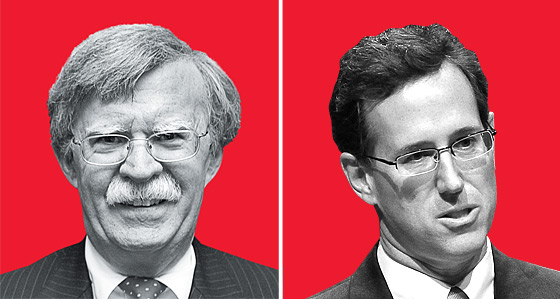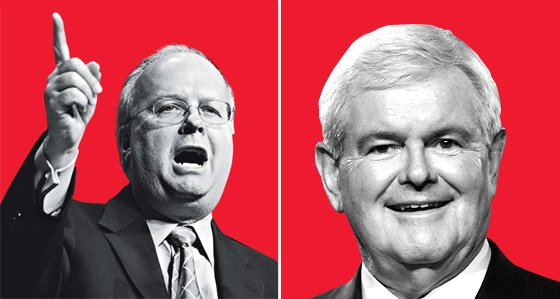Secretary of State Hillary Clinton has the ability to stop Koch Industries, Inc. from profiting off a pipeline that would carry the dirtiest oil on Earth through six states, one of America's most important aquifers and almost 2,000 miles of American homes and farmland. Help us reach our goal of 50,000 individuals telling Secretary Clinton to say No to the Kochs and Yes to protecting Americans at http://kochbrothersexposed.com/tellclintonno
Ailes began to doubt Palin’s political instincts. He thought she was getting bad advice from her kitchen cabinet and saw her erratic behavior as a sign that she is a “loose cannon,” as one person close to him put it. A turning point in their relationship came during the apex of the media debate over the Tucson shooting. As the media pounced on Palin’s rhetoric, Palin wanted to fight back. She felt it was deeply unfair that commentators were singling her out. Ailes agreed but told her to stay out of it. He thought if she stayed quiet, she would score a victory.
“Lie low,” he told her. “If you want to respond later, fine, but do not interfere with the memorial service.”
Palin ignored Ailes’s advice and went ahead and released her now-infamous “blood libel” video the morning Obama traveled to Tucson. For Ailes, the move was further evidence that Palin was flailing around off-message. “Why did you call me for advice?” he wondered out loud to colleagues.
What had been an effort to boost ratings has recently become a complication for Fox. Employing potential presidential candidates has opened the network up to criticism that it is too politicized. As risible as liberals find the slogan “Fair and Balanced,” it was significantly more defensible before Ailes’s candidate-hiring binge.
As Ailes struggled with what to do with Glenn Beck in a changed political landscape, an older problem reared its head. In February, news broke that former lawyers for Judith Regan, the former HarperCollins publisher, claimed in sworn statements that Regan taped conversations in which Ailes had allegedly told her to lie to investigators about her affair with Bernie Kerik to help Ailes’s friend Rudy Giuliani’s 2008 presidential campaign. News Corp. issued a statement that quoted Regan denying she felt pressure, but it sparked a media frenzy for a couple of days. Regan blames Ailes for her negative press in the wake of her 2006 ouster from News Corp. and claims Ailes is trying to protect powerful interests. “Connect the dots,” she told me.
As Ailes’s history with Regan was racing back to the present, he had little choice but to force the hands of the candidates on his payroll. In late February, Shine made calls to Palin and her husband, Todd, to ask if she was going to run for president. The Palins told him they hadn’t decided. “I’m not sure Sarah has made up her mind one way or the other,” a Palin adviser told me. The network is working hard to get a definitive answer out of her. A couple of weeks earlier, Shine and Fox general counsel Dianne Brandi called Mike Huckabee into a meeting to ask him about his presidential ambitions.
In early March, Fox News suspended contracts for Gingrich and Santorum. Santorum was said to be angry at Fox’s decision. He hadn’t formally declared his candidacy when Fox decided he had to go, even as Ailes had allowed Palin and Huckabee to keep their lucrative gigs before making a decision. Last week, Huckabee finally did, choosing the Fox paycheck over the GOP primary. And in making his announcement on-air, he turned his Saturday-evening show into an odd ratings-grab spectacle. “I didn’t like the endgame; it was a bizarre-type thing,” Ed Rollins, Huckabee’s former ’08 campaign manager, told me.
In the halls of Fox News, people do not want to be caught talking about what will happen to Fox News after the Ailes era. The network continues to be Ailes’s singular vision, and he’s so far declined to name a successor. One possibility in the event Ailes departs when his contract is up in 2013 is that Bill Shine could continue to oversee prime time and Michael Clemente would run the news division. But more than one person described fearing Lord of the Flies–type chaos in the wake of Ailes’s departure, so firm has his grip on power been.
This spring, the announcement by News Corp. that James Murdoch was being promoted to deputy chief operating officer triggered another round of speculation that the accession of the next generation would be problematic for Ailes. So far, James has had little interaction with Ailes. The last time the pair worked closely together was in the late nineties, when James was overseeing News Corp.’s dot-com properties and was briefly in charge of Fox’s website.
James likely witnessed his older brother Lachlan’s frustration over clashing with Ailes (one of the factors that caused Lachlan to leave the company). James has smartly avoided any major interactions with Ailes. Last year, when Matthew Freud criticized Ailes in a Timesarticle, James immediately e-mailed Ailes to say that Freud wasn’t speaking for him. At a budget meeting with Ailes and Rupert a couple of weeks ago, James, who clearly hopes to run the company some day, praised Ailes for his outsize profits. But the future could be different. Rupert’s wife, Wendi, recently agreed to host an Obama fund-raiser with Russell Simmons. “She’s a big fan,” Simmons told me.
Last week, Ailes turned 71. He’s spending considerable time thinking about his legacy. It bothers him that he’s still regarded as an outsider. “He doesn’t want to be hated,” a GOPer who knows Ailes well said. “It really bothers him. You can’t gross a billion a year and retain an outlaw sensibility forever.”
But there’s other unfinished business, which is why Chris Christie is so appealing. At dinner last summer, they talked about pension reform and getting tough with the unions, and Ailes saw in Christie a great candidate: an ordinary guy, someone you’d be comfortable talking to over your back fence. But Ailes may have seen something else. Christie’s got Fox News TV values with a ready-made reel. And of course, Obama versus Christie is a producer’s dream: black versus white, fat versus thin, professor versus prosecutor. Maybe, just maybe, Ailes could laugh all the way to the White House and the bank.






